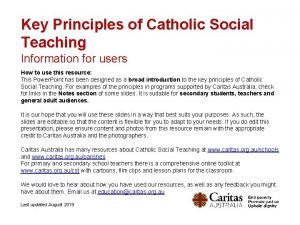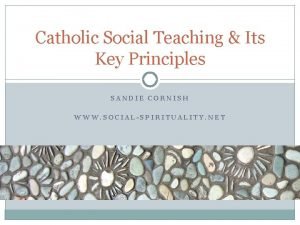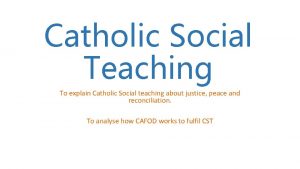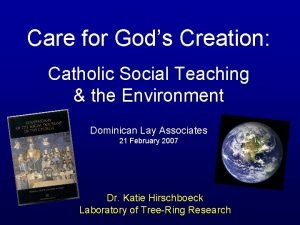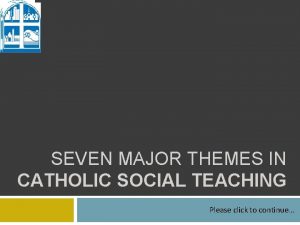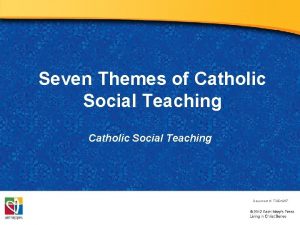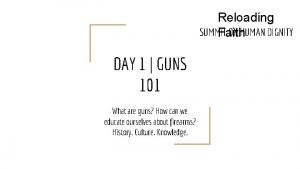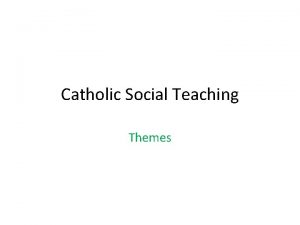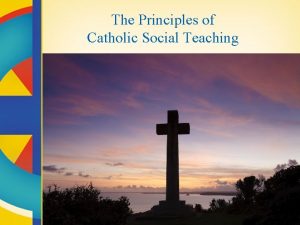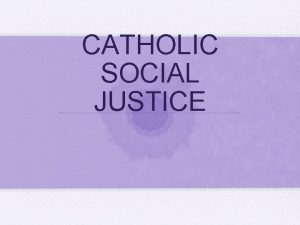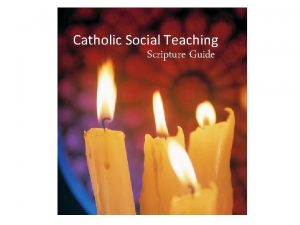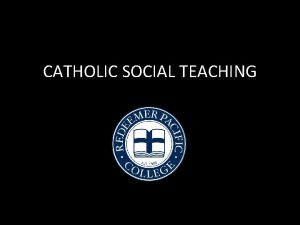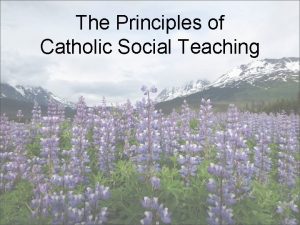The Principles of Catholic Social Teaching Human Dignity








- Slides: 8

The Principles of Catholic Social Teaching

Human Dignity • This principle refers to the value of the human person and the right to have that value respected from the moment of conception to death • This principle teaches us that we have the right to whatever we genuinely need in order to become full human beings (eg. food, shelter, clothing, education)

Stewardship • We must care for all that God has made • We must not disrespect the human body or the world’s resources • We need to ensure that we set a good example for future generations

Preferential Option for the Poor • God’s special closeness with the poor is known as the preferential option for the poor • The rich do not share in God’s closeness with the poor • The preferential option for the poor is a call to share AND a call to follow God’s example and give preferential love to the poor when making community decisions • Jesus emphasized that solidarity with the poor is solidarity with God

Common Good • The common good refers to all the social conditions that allow us to reach our fulfillment more fully and more easily • It is made up of 3 essential elements: 1. Respect for the person 2. The social well-being and development of the group itself 3. Peace (eg. the stability and security of a just order)

Dignity of Work and the Rights of Workers • We are called to protect the basic rights of all workers • Examples of workers rights include: the right to meaningful employment, fair wages, private property, and the right to organize, join unions, and pursue economic opportunity

Rights and Responsibilities • We have the reciprocal right and responsibility to be involved in the institutions which govern our lives • We are to both serve and be served by the institutions in the world • We must protect the rights that all people have to those things required in life (eg. food, clothing, shelter)

Call to Family, Community, and Participation • We are called to support the family – the principle social institution – so that people can participate in society, build a community spirit, and promote the well being of all
 Caritas australia catholic social teaching
Caritas australia catholic social teaching Principles of cst
Principles of cst Catholic dignity
Catholic dignity Cafod catholic social teaching
Cafod catholic social teaching It is a key to catholic identity
It is a key to catholic identity Catholic social teaching care for god's creation
Catholic social teaching care for god's creation 7 themes of catholic social teaching examples
7 themes of catholic social teaching examples Seven key themes of catholic social teaching
Seven key themes of catholic social teaching Questions about human dignity
Questions about human dignity
